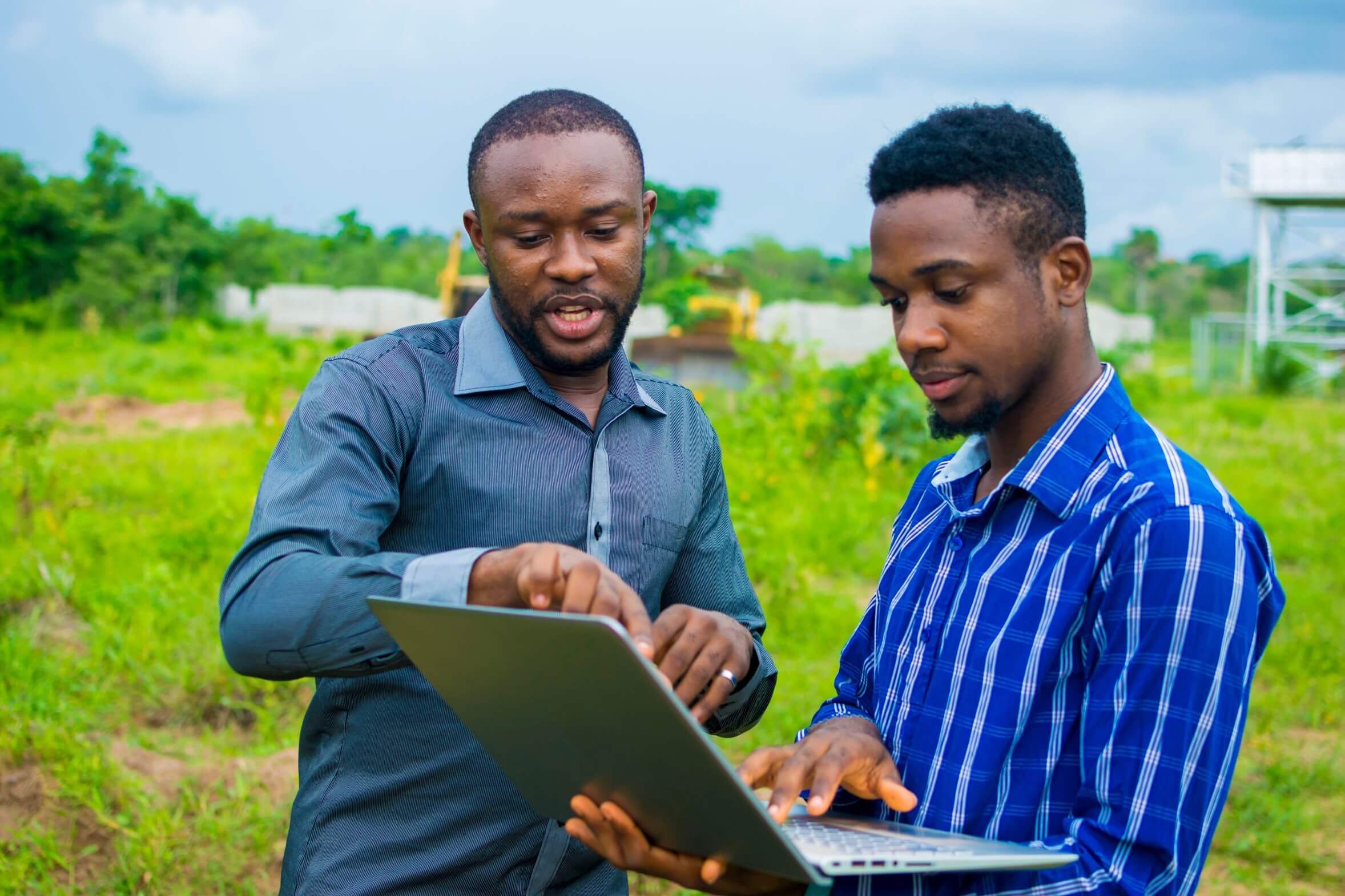Public services in Cameroon are going online, entrepreneurs are building startups, and development partners and the private sector are increasingly financing the digitalization of services. Internet traffic is on the rise. The number of public and private data centers is growing, as are cloud computing services, virtual private servers, domain registrations, and email hosting. This is all a sign of Cameroon’s embrace of digital transformation. However, the digital sector contributes only around three percent to Cameroon’s GDP, which is below similar economies such as Senegal and Côte d'Ivoire.
Expanding the infrastructure for broadband, which is a prerequisite for accelerating digitalization, is a current priority for Cameroon. Better access to data through affordable and good quality broadband can lead to better lives in multiple ways. Governments can use it to improve programs, policies, and to better serve marginalized people and communities. The private sector can use data to drive platform-based business models that boost economic activity and international trade in services. Individuals, empowered by data, can make better decisions and hold governments accountable.
It is against this backdrop that Cameroon aspires to become a data hub in Central Africa. But the country has work to do – broadband penetration is still lagging and it does not yet have a data protection law or safeguards to regulate governance, interoperability, and cybersecurity. Also, some government agencies are not yet digitalized, and many agencies do not communicate with each other; digital government platforms are not interconnected and interoperable.
Much of this interest in digitalization is playing out in Cameroon’s vital agricultural sector. Agricultural development is a key priority for the government because it contributes around 17% of the country’s GDP, and the digitalization of agriculture would address a key need by generating real-time statistics on value chains . According to Tobi Ondoa, the Inspector General in the Ministry of Agriculture, “agriculture is a key development sector in Cameroon, and it is important to have viable agricultural statistics to support planning, but there are still some difficulties in realizing the agricultural census. This is due to limited resources, and geographic and security challenges in reaching some rural areas.”
Government leadership is needed to accelerate digital transformation, but Cameroon faces challenges. Most of the data generated in the country is hosted abroad, and cyberattacks are not uncommon, which is a significant impediment to private-sector investment and growth. “There is an untapped data market in Cameroon, but for this to be unleashed, the government needs to build the appropriate frameworks on cybersecurity, interoperability, and standards ,” said Reuben Opata, Chief Technology Officer for MTN Cameroon, a private telecommunications company.
To discuss practical next steps, several government ministers together with more than 70 other officials from the public sector, the private sector and the civil society met in Yaoundé in May 2022 to discuss the findings and recommendations of the World Development Report 2021 on Data for Better Lives. They focused on how the country can build stronger data governance frameworks and how to best use data for development. Participants debated ways to boost the national statistical capacity, and discussed the importance of data governance, including protecting sensitive state data, citizens’ personal data, and building better defenses against hacking.
There is clearly a common interest in improving data governance in Cameroon, and leadership from the public sector is critical to make this happen. At a strategic level, building the necessary safeguards, resolving interoperability barriers between national information systems, and ensuring that an increasing share of the data generated in the country is no longer hosted abroad, are important first steps. At a more technical level, reinforcing cybersecurity protections, improving stakeholders' ability to access risk management, agility, and bridging skills gaps are also key. Right now, Cameroon is focused on building a foundational element of a strong digital economy: digital skills, especially in agriculture. Education and training programs will also help better prepare young people for the digital economy and ensure a pipeline for the next generation of workers.



Join the Conversation